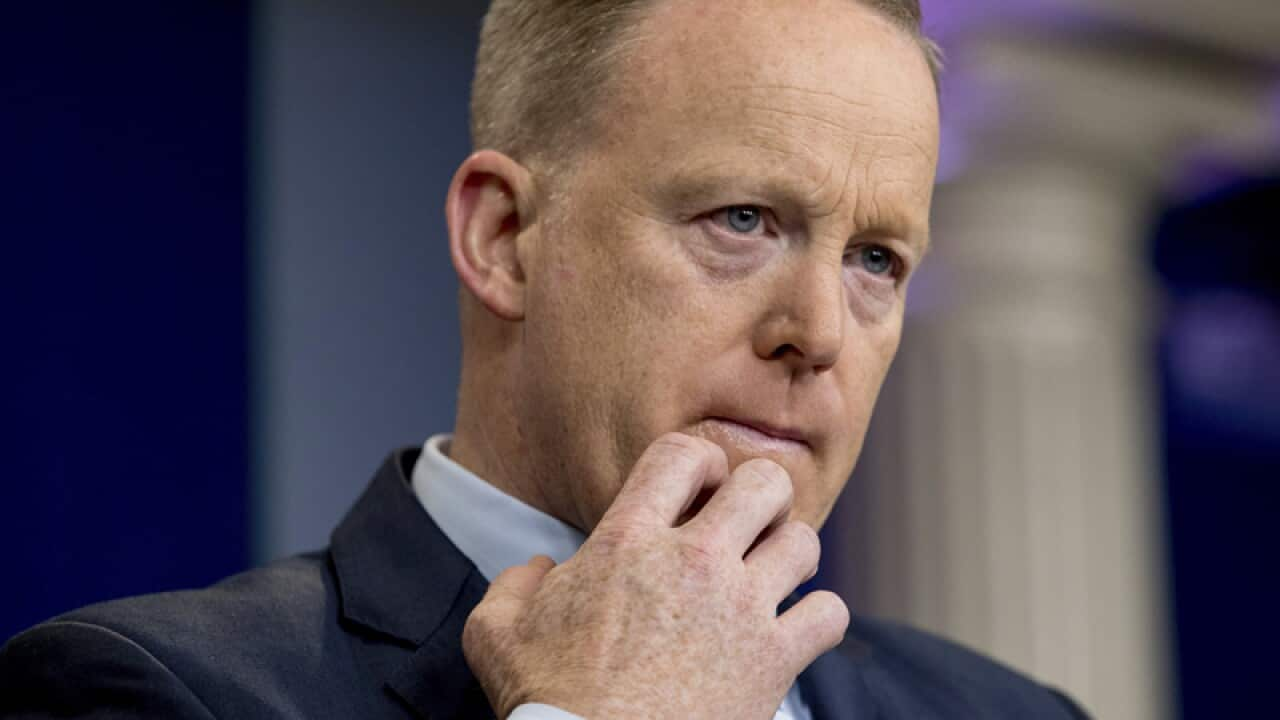Democratic Congressman Mike Quigley on Monday introduced the so-called COVFEFE Act, a reference to Trump's most famous typo yet, when last month he mysteriously tweeted from his personal account: "Despite the constant negative press covfefe."
It was unclear what he was trying to say, and the word "covfefe," of course, does not exist in English.
Hours later, Trump deleted the offending tweet. But that didn't stop online wags and media commentators from having a bit of fun.
"'Covfefe is a great word, period!' - Sean Spicer tomorrow," read one tweet, mentioning the president's spokesman.
Spicer's take on 'covfefe'
Related reading

Trump covfefe tweet ridiculed worldwide
Yet the matter highlights a more serious issue about whether tweets should be included under the Presidential Records Act.
Trump frequently deletes Twitter messages -- especially those with spelling errors -- calling into question whether he is wrongly altering the record of his time in office.
"In order to maintain public trust in government, elected officials must answer for what they do and say; this includes 140-character tweets," Quigley said.
"If the president is going to take to social media to make sudden public policy proclamations, we must ensure that these statements are documented and preserved for future reference. Tweets are powerful, and the president must be held accountable for every post."
The COVFEFE acronym in Quigley's legislation stands for: "Communications Over Various Feeds Electronically for Engagement."
Quigley's office said the COVFEFE Act would make sure deleted tweets are documented for archival purposes, and would make deleting tweets a violation of the Presidential Records Act.
Trump travel ban deals with another defeat
Related reading

'Small group' gets Trump covfefe tweet: Spicer










